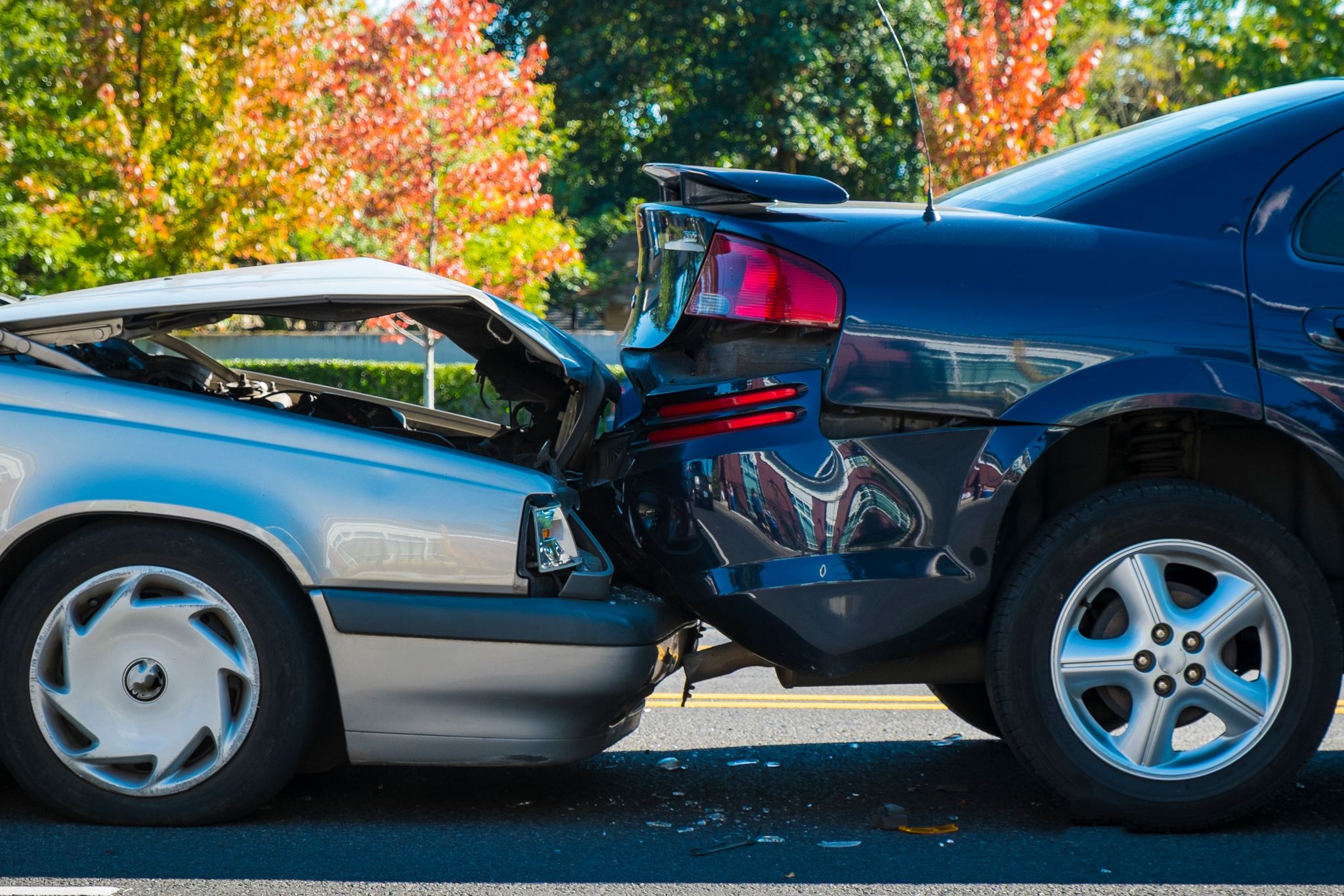Stephen Hasner | Car Accidents | December 17, 2020

Road rage is a form of aggressive driving that can turn an easy commute into a stressful and nerve-wracking experience for many drivers. Aggression behind the wheel can occur for various reasons but is most frequently due to a general disregard for safety or speeding.
Tailgating is a common sign of road rage and can present a hazard for both the driver and the cars in front of them. Often, tailgating is a leading cause of car accidents and, more specifically, rear-end collisions.
What Is Tailgating?
A general rule of thumb for drivers is maintaining at least one car length’s distance between yourself and the vehicle ahead of you. At higher speeds, space should increase to allow further stopping time in case of an emergency.
Tailgating occurs when a driver follows the vehicle in front of them closer than the suggested distance. Drivers who fail to provide enough space between themselves and other vehicles can endanger themselves and other drivers nearby.
Why Do Drivers Tailgate ?
There may be several reasons that drivers use tailgating:
Impatience
Some drivers prefer to drive at faster speeds than the other vehicles on the road. Tailgating is often an attempt to persuade other drivers to change lanes so that they can pull ahead of the other cars on the road.
A driver may become impatient if earlier traffic jams caused them to fall behind schedule, or they may simply prefer to drive faster than the speed limit and therefore become impatient around vehicles that do not match their speed.
Drivers of cars with an ability to reach top speeds in short amounts of time are more likely to drive with impatience.
Attempting to Pass
Occasionally, drivers tailgate to pass a slower driver in front of or beside them. To pass another vehicle, it can appear necessary to get closer to the car in front of you so that you can more efficiently pass them when the opportunity presents itself. However, passing another vehicle should only be done when the driver ahead is moving so slowly that tailgating is not necessary to pass.
Disregard for Road Safety
Some drivers have a disregard for road safety and driving laws. These drivers are often the most dangerous and can present a variety of hazards to other vehicles. These drivers may also have a false sense of security in assuming that they have full control over their vehicle and can react quickly enough to prevent a car accident.
Distracted Driving
A driver who is tailgating may be unintentionally doing so due to distractions in the car. Cell phones, intoxication, or negligent passengers can cause accidental speeding and prevent a driver from properly distancing themselves from other vehicles.
Fuel Efficiency
Drivers often use the cruise control as a means of fuel efficiency on the road. Vehicles consume less gas when maintaining a speed, rather than continuously breaking and accelerating. Depending on the driver, fuel efficiency may encourage them to stay at their current speed, even if another car is in front of them. This can quickly cause impatience as the driver needs slower vehicles to move out of their way.
There is no excuse for tailgating that validates putting other drivers in danger. However, understanding the reasons behind aggressive driving can help you respond to other drivers more safely.
How To Disengage Drivers Who Are Tailgating
While you may be unable to prevent other drivers from tailgating, there are actions you can take to protect yourself and others on the road:
Practice Empathy
The first thing you can do to avoid further aggravating a driver who is demonstrating road rage is to remain calm and practice empathy rather than respond with anger. Attempting to teach the driver a lesson or responding with vulgar hand gestures may further escalate the situation and endanger other nearby vehicles.
Do Not Break Check the Driver
As tempting as it may be to send the tailgating driver a warning by tapping the breaks, this can aggravate the situation. Additionally, if the driver is distracted, it may cause an accident. Although the other driver would be at fault, it could still cause serious damage and put other drivers at risk.
Change Lanes
When possible, change lanes to avoid a driver who is tailgating or showing signs of road rage. The only vehicle you can control is your own, so do your best to protect yourself and your passengers by removing yourself from the situation.
When confronted with aggressive driving, the best thing you can do for yourself and your passengers is to distance yourself from the vehicle and stay calm.
Stay Alert
To avoid accidents and stay safe on the road, you must remain vigilant behind the wheel and keep an eye out for distracted driving. Report erratic driving to local authorities and exit the roadway if conditions become unsafe.
Contact the Atlanta Car Accident Lawyers at Hasner Law PC For Help
For more information, please contact the Atlanta car accident law firm of Hasner Law P.C. at our nearest location to schedule a free consultation today.
We serve in Fulton County, Chatham County, and its surrounding areas:
Hasner Law PC – Atlanta Law Office
2839 Paces Ferry Rd SE #1050
Atlanta, GA 30339
(678) 888-4878
Hasner Law PC – Savannah Law Office
221 W York St
Savannah, GA 31401
(912) 234-2334


